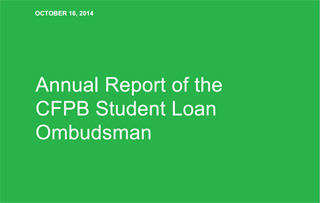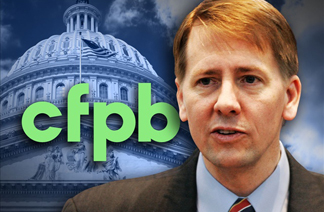Tag Archives: Predatory Lending
More Auto Title Lenders Are Snagging Unwary Borrowers In Cycle Of Debt
by Jim Puzzanghera, Los Angeles Times

“I look at title lending as legalized car thievery,” said Rosemary Shahan, president of Consumers for Auto Reliability and Safety, a Sacramento advocacy group. “What they want to do is get you into a loan where you just keep paying, paying, paying, and at the end of the day, they take your car.” … In California, the number of auto title loans jumped to 91,505 in 2013, the latest data available, from 64,585 in the previous year and 38,148 in the first year, 2011, that was tracked by the state Department of Business Oversight. Read More ›
AB 925 Dies: Secret Recording Of Business-Customer Cell Phone Calls Remains A Crime

Democrats on the Assembly Committee on Public Safety approved AB 925 on a 5-2 party line vote after strenuous opposition from CFC and other consumer, privacy, senior, student, labor and immigrant advocacy groups weakened the bill. Amendments were not yet in print but reportedly would require notification to customers that a call may be recorded 20 seconds into a cell phone conversation, so it remains a bad bill. Read More ›
Payday Loan Rules Proposed by Consumer Protection Agency
by Michael D. Shear and Jessica Silver-Greenberg, The New York Times

Even supporters of the consumer bureau’s mission were critical on Thursday, saying that the proposed payday lending rules do not go far enough. A chorus of consumer groups said that loopholes in the proposal could still leave millions of Americans vulnerable to the expensive loans. … An analysis of 15 million payday loans by the consumer bureau … found that few people who have tapped short-term loans can repay them. Borrowers took out a median of 10 loans during a 12-month span, the bureau said. More than 80 percent of loans were rolled over or renewed within a two-week period. Read More ›
Credit Card Issuers Shouldn’t Bully Customers Into Arbitration Clauses
by David Lazarus, Los Angeles Times

[The Consumer Financial Protection Bureau] study found that as many as 80 million U.S. credit card customers are subject to arbitration clauses. The study showed that arbitration is much better for businesses than for consumers. Only 20% of cases resolved in consumers’ favor from 2010 to 2011 resulted in relief being paid, according to the study, while 93% of cases resolved in favor of companies led to payments. More strikingly, the study found that when consumers prevailed in arbitration, they were awarded an average of 57 cents for every dollar claimed. But when companies prevailed, they received 98 cents on the dollar. Read More ›
Corinthian Students To Get $480 Million Relief From ‘Predatory’ Loans
by Chris Kirkham, Los Angeles Times

As many as 170,000 students who took out private loans offered by Corinthian will see an immediate 40% reduction in their balances — about $1,880 on average — with additional reductions likely in the future. All students will see a 20% tuition reduction. And those enrolled in poor-performing programs can seek a full refund or transfer into another program. … Corinthian has been on a downward spiral since last summer, when the U.S. Department of Education restricted its access to federal student aid amid concerns that the company had falsified student job placement data. Read More ›
Is It Time For Regulators To Stab Zombie Debt Through The Brain?
by Chris Morran, Consumerist

What a lot of people don’t know — and what debt collectors rarely mention — is that most unpaid debt has an expiration date after which you can’t be sued for repayment. And even fewer consumers are aware that this dead debt can be sparked back to life by making a payment after it’s already passed on to the debt afterlife. A new report calls on federal regulators to make sure that debt doesn’t rise from the dead in zombie form. Read More ›
Why You Should Think Twice About ‘Buy Now, Pay Interest Later’ Deals
by Herb Weisbaum, Today

About half the retailers that offer some sort of financing program offer deferred interest plans, according to a recent survey by CardHub.com, a credit card comparison website. The report, Retailers with the Sneakiest Financing Offers, concludes that this is a “decidedly misleading and potentially harmful financing option.” Card Hub CEO and founder Odysseas Papadimitriou says these deferred interest offers are completely different from credit cards that offer zero percent interest on new purchases for a certain amount of time. Miss a payment on the credit card and you only pay interest on the unpaid balance – it’s not retroactive. Read More ›
Why You Shouldn’t Get a Reverse Mortgage Just Because Fred Thompson Tells You to
by Ashlee Kieler, Consumerist

Reverse mortgages have been found to leave families with debts they can never repay, four-in-five payday loans are made to consumers already caught in the debt trap, and on average 54% of students who attend a for-profit college leave without a degree — with one-in-five of those students defaulting on their loans. … Consumers Union, along with California Advocates for Nursing Home Reform provided comments to the Consumer Financial Protection Bureau regarding consumers’ use of reverse mortgages. Read More ›
CFPB Finds Older Consumers Face Illegal, Harassing Tactics from Debt Collectors
by Ashlee Kieler, Consumerist

A new report from the Consumer Financial Protection Bureau shines light on the issues older consumers face when it comes to their financial well-being. According to the report, which looked at older consumers’ complaints filed with the CFPB between July 2013 to September 2014, the number one issue Americans 62 years of age and older faced involved their experiences with debt collectors. The CFPB issued a consumer advisory including tips for older Americans faced with debt collection. Read More ›
Private Student Loan Companies Provide Few Options for Borrower, Driving Them to Default
by Ashlee Kieler, Consumerist

Officials with the CFPB say these shortcomings reflect an industry that has done little to make good on commitments by lenders to expand alternative repayment options. “The response by the private student loan industry to distressed borrowers is failing to help them avoid default,” Rohit Chopra, CFPB student loan ombudsman says in the report. “Too many borrowers are barely treading water, losing hope that these companies will throw them a lifeline.” Read More ›
Online Payday Lenders Are Often ‘Fraudulent and Abusive,’ Study Finds
by Herb Weisbaum, Today
Consumer advocates have long advised against payday loans because of the steep fees and the lump-sum repayment requirement. Pew’s research shows that the average person who takes out one of these two-week loans is actually in debt for five months of the year. This new report makes it clear that the potential for problems is much greater when the transaction takes place online rather than at a store. And if something does go wrong, it’s often a lot harder to deal with it. If you have a problem with an online payday lender, file a complaint with the Consumer Financial Protection Bureau. Read More ›
BofA ordered to pay $1.3 billion over Countrywide lending program
by E. Scott Reckard, Los Angeles Times

A New York judge ordered Bank of America to pay nearly $1.3 billion in penalties in a civil fraud case involving a mortgage program that Countrywide had nicknamed “the hustle,” which fast-tracked the processing of mortgage applications. After a monthlong trial, a jury decided last fall that BofA and Countrywide were liable for selling thousands of bad loans to Fannie Mae and Freddie Mac. The lending program fast-tracked mortgage applications from August 2007 through May 2008. Shortly thereafter, Bank of America bought Countrywide, the nation’s largest home lender at the time. Read More ›
The CFPB has only just begun tackling financial services in its first four years
by Ashlee Kieler, Consumerist

Four years ago, the Consumer Financial Protection Bureau was created as a safeguard to ensure the financial industry followed the rules when selling products and services to consumers – and a lot has happened since that time. From returning billions of dollars to consumers who were wrong by financial services to holding for-profit colleges accountable for their deceptions, the work of the CFPB has touched many areas of the financial world and it continues to expand. While the CFPB has provided assistance to millions of consumers in its short time, there is undoubtedly more issues to be addressed. Read More ›